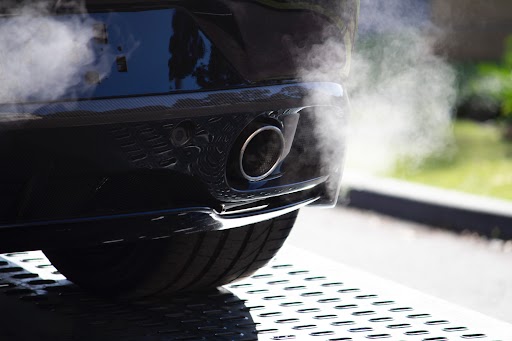If you feel that you’re in the dark about your vehicle’s exhaust system and how to care for it, you’ve come to the right place!
Here at Houska Automotive, we love to get our hands greasy to ensure that our customers are traveling as safely and comfortably as possible. We also want to empower our customers by helping them to better understand the ins-and-outs of their vehicles – so today, we’re here to talk about exhaust.
What is exhaust?
Gasoline engines are fueled by two main components – gasoline and air. The gasoline that we use in vehicles is made up of hydrogen and carbon – in gas, those two elements combine to make a hydrocarbon. Air, as we know, is primarily composed of oxygen and nitrogen.
When a gasoline engine is burning in a perfectly efficient manner, it produces only three byproducts – water vapor, carbon dioxide and nitrogen. Unfortunately, engines never burn fuel in a perfectly efficient manner. Because of this, engines produce three additional byproducts – carbon monoxide, unburned hydrocarbons and oxides of nitrogen. These automotive pollutants – also called exhaust – have the potential to increase ozone levels, cause health problems and even damage crops.
What parts of your vehicle deal with exhaust?
A vehicle’s exhaust system is made up of many components, all of which work together to collect exhaust fumes and remove harmful pollutants before the exhaust is released into the atmosphere. Exhaust systems also muffle the sounds made by the engine’s combustion chamber.
Your vehicle’s exhaust manifold, catalytic converter, muffler, resonator and tailpipe are all a part of the exhaust system. If any of these components are damaged or are not working properly, you may notice issues such as lower fuel efficiency, unusual noises coming from your muffler, or odd-smelling exhaust coming from your vehicle’s tailpipe. No one wants those smells wafting their way, and you certainly don’t want your vehicle’s faulty muffler announcing your arrival home before you even turn on your street! Having a faulty exhaust system is not only inconvenient, but it can be a safety issue as well.
Why is it important to test exhaust and emissions?
Vehicle emissions continue to be a major contributor to air pollution in Colorado. Good air quality is incredibly important to the health and safety of all of us who live here in Northern Colorado – getting our vehicle emissions tested on a regular basis is a proactive measure we can all take to protect the quality of the air we breathe!
Air Care Colorado is Colorado’s current emissions inspection program. Visit their website to view hours, locations, wait times and information regarding their emissions testing processes.
If you have a diesel vehicle, Houska can test your diesel emissions on most passenger cars, SUVs, road semis, trucks, buses, motorhomes and all-wheel vehicles. An appointment for your diesel emissions testing at our Fort Collins facility is highly recommended – call us today for more information or to schedule an appointment!
What if I fail my emissions test?
Houska Automotive is here to help repair your vehicle should it fail its annual emissions test. If you get your emissions tested and your vehicle did not pass, call us to schedule an appointment. Remember to bring your failed emissions report with you, and we’ll be quick to get your vehicle safely on the road again.

